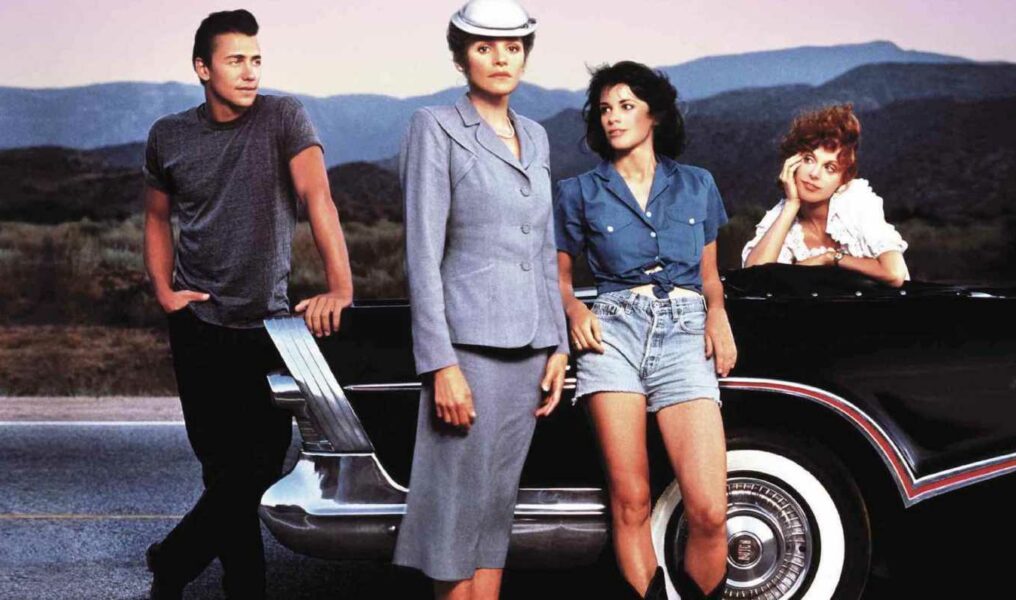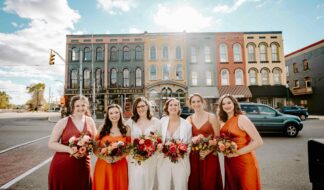6 Iconic Road Trip Movies That Symbolize Queer Self-Discovery
No surprise that queer audiences connect deeply with life on the road

For queer audiences, the rich symbology of cars and road films — along with their enduring outsider associations — has made them tantalizing objects to re-interpret through a queer lens. Evoking ideas of mobility, rebellion and self-determination, road movies have always resonated with broader notions of camaraderie, romance and escape.
When queered, these symbols and stories echo in ways that cast old narratives into new frames. Upending scripts and structures ranging from gendered hierarchies and legal strictures to notions of where queer people might be able to carve out a home, the image and role of the car becomes altered, like so many things, the instant queer people take it up.
What follows is an incomplete tour of queer-centric works which center on the allure of cars as extensions of different, less normative kind of selves, each suggesting an alternate pathway for mapping out one’s world.
“To Wong Foo, Thanks for Everything! Julie Newmar” (1995)
The hulking, daisy-yellow Cadillac convertible snagged from a reluctant dealer by the leads in “Wong Foo” serves as an extension of their own outsized style and physicality. When Patrick Swayze, Wesley Snipes and John Leguizamo, as award-winning drag queens, find themselves stalled in a rural town on a cross-country tour, the convertible serves as a way for them to assert the grandeur of their drag presentation together, even to anyone who could somehow miss it. Though their temporary home is not immediately hospitable, “Wong Foo” suggests that even the most conservative spaces can be changed by just brief contact with flamboyant queer personae. By the time the queens skip town, they’ve plainly left their mark, expanding the range of habitable queer terrain in the process.
“The Adventures of Priscilla, Queen of the Desert” (1994)
An even bigger vehicle features in “Priscilla,” granting the film’s trans lead character (Terence Stamp) and accompanying drag performers a mode of conveyance that makes them a target for hate. Their response? To paint it pink in a gesture of stubborn, expressive defiance. As a glaring, massive signifier of queer identity driven across a range of unwelcoming spaces in the Australian outback, the titular bus also becomes a symbol of the ties that closely — and not always comfortably — bind its sniping, frequently hostile trio of lead performers. Serving as a pressure cooker for their fraught relationships, a means to achieving a shared livelihood and a flexible dwelling place for a group of outsiders, the bus draws out the stakes and tensions of self-styled queer presentation and the struggle to retain a sense of community even in the worst of times.
“The Living End” (1992)
Fully embracing the post-“Easy Rider” rebel iconography of American road films, director Gregg Araki’s outlaw romance likewise embraces that film’s sense of abrasiveness, experimentation and risk along with gunplay and leather jackets. Spotlighting a pair of HIV-positive gay men keenly aware of their place on the margins (“Fuck everything,” one says early, following it with “We’re totally free.”), a life on the road — even if it’s brief — allows for forms of power and self-assertion that would otherwise prove impossible to find. Channeling a sense of rage brewed from a decade-plus of queer marginalization and governmental neglect, driving proves a cornerstone to its leads’ searing romance and itinerant life, a free-wheeling existence shadowed by being one of the only roads available.
“My Own Private Idaho” (1991)
Moments of transit tend to pass by here in narcoleptic ellipses, as befits the tossed-about existence of a drifting pair of leads. For River Phoenix’s Mikey, loss of control is an inevitable fact of life in a way it’s not for his traveling companion, Keanu Reeves’ well-heeled Scott, with movements across states often happening in periods when Mikey’s left unconscious. Whether through sex work in clients’ cars or hitching rides, Mikey lives and works largely as a passenger, denied as a matter of both class and queer identity — the modest sense of self-assertion typically found in nomadic life. And yet director Gus Van Sant still finds poetry in his meanderings, a romance and dreamlike peace amid his scrabblings to get by. In fully embracing an outsider’s place, Mikey drifts beyond the most gutting effects of loss.
“Desert Hearts” (1985)
In director Donna Deitch’s underseen marvel, a car provides a space outside the trappings of familiar society for Helen Shaver’s soon-to-be-divorced lead. In the car, there’s room for surprise and exploration and an environment conducive to vulnerability; drives out with Cay (Patricia Charbonneau) offer up a miniature world in which characters are free to open up. For these queer women, there’s a sense of shelter found in such excursions, a quasi-private space which insulates travelers from the stigmas they’d find in better-monitored, more public spaces. In one of its finest scenes of tentative advance, the two kiss through a car window in a rainstorm amid a wash of misty light. The sense of newfound freedom proves palpable, even from beneath the cover of a storm.
“Y tu mamá también” (2001)
Queerness is just a hinted presence for most of “Y tu mamá,” a Mexican road trip picture focused on prolonged adolescence whose leads constantly undermine its journey’s received associations with progress. Seeing its two young men grasping at the affections of Luisa (Maribel Verdú), always the bemused adult in the room, director Alfonso Cuarón follows their ardent, performative machismo to a natural endpoint, which sees it unmasked as desperately repressed and insecure. Questioning narratives of travel as an empowering route to personal progress, the film finds its most dizzyingly revelatory moments in experiences both unplanned and unexpected. It’s the car here that pushes its drivers to endpoints of queer self-discovery, taking them to places they might otherwise not have found.









